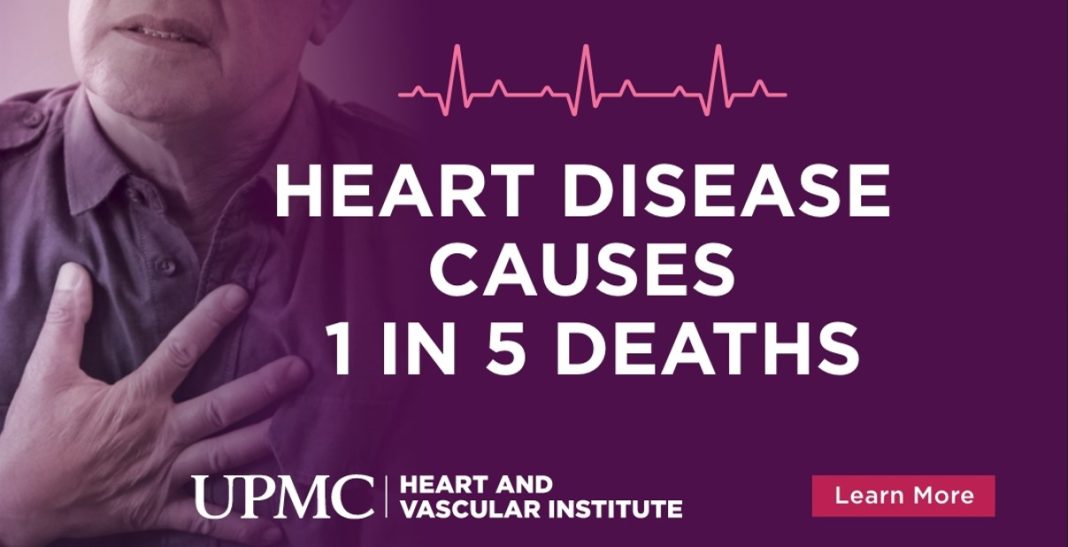UPMC Cardiologist: Early Signs of Heart Disease

UPMC Heart and Vascular Institute
Heart disease is the leading cause of death for both men and women in the United States, yet many people miss its early warning signs. Some symptoms are subtle – recognizing them early can lead to earlier intervention, making treatment and management easier and more effective.
Common Early Symptoms
Heart disease doesn’t always begin with intense chest pain. Be aware of these signs:
- Fatigue – Feeling unusually tired or fatigued without a clear cause could indicate your heart is struggling to deliver oxygen-rich blood.
- Shortness of breath – Difficulty breathing during everyday activities or while resting can point to heart issues.
- Discomfort – Chest pressure, tightness, or discomfort may be mild, but should not be ignored. Pain in the arms and shoulders could also be related to heart issues.
- Swollen legs – Swelling in the legs or feet can be caused by a buildup of fluids, signaling possible heart failure.
- Heartbeat rhythm – Consistent heart beats are the key to maintaining blood flow. If yours is fast, slow, irregular, or uneven, it should be addressed.
- Excessive sweating – If you experience sweating while not being active, like night sweats, this could be a sign of heart disease.
Symptom Differences in Men and Women
Symptoms of heart disease may be more subtle in women than they are in men. According to the American Heart Association, they can even be mistaken for conditions like acid reflux, the flu, or aging.
In addition to the ordinary symptoms, women might experience neck, jaw, or back pain, plus lightheadedness or nausea. Not recognizing these signs as related to heart issues can unfortunately lead to delayed care.
When to Call Your Doctor
Persistent symptoms are key indicators. If you notice any of these early warning signs consistently, it’s important to reach out to your primary care provider (PCP). They can perform tests to assess your heart, recommend preventative steps or treatments, or if needed, refer you to a cardiologist for additional care.
While early symptoms may look different from patient to patient and may seem like no big deal, there’s no such thing as a “little heart attack.”
Regular visits to your PCP are crucial for monitoring your overall health and identifying potential risk factors for heart disease. Building an open, trusting relationship with your PCP encourages honest conversations about symptoms, lifestyle habits, and family history, all of which contribute to effective prevention and early intervention.”
Preventing Heart Disease
Prevention is always the best approach. To keep your heart healthy:
- Stop smoking
- Aim for at least 150 minutes of moderate exercise each week
- Eat whole, unprocessed foods
- Limit sugars, sodium, and alcohol
Taking proactive steps now can reduce your risk and protect your heart for the future. Prioritize your health—small changes can make a big difference.
Jeffery Gilbert, D.O., is a cardiologist with UPMC Heart and Vascular Institute and sees patients at 15 Meade St., Wellsboro, and 416 South Main St., Mansfield. To schedule an appointment with Dr. Gilbert at either location, call 570-321-2800. For more information about UPMC Heart and Vascular Institute services in North Central Pennsylvania, go to UPMC.com/HeartNCPA.





